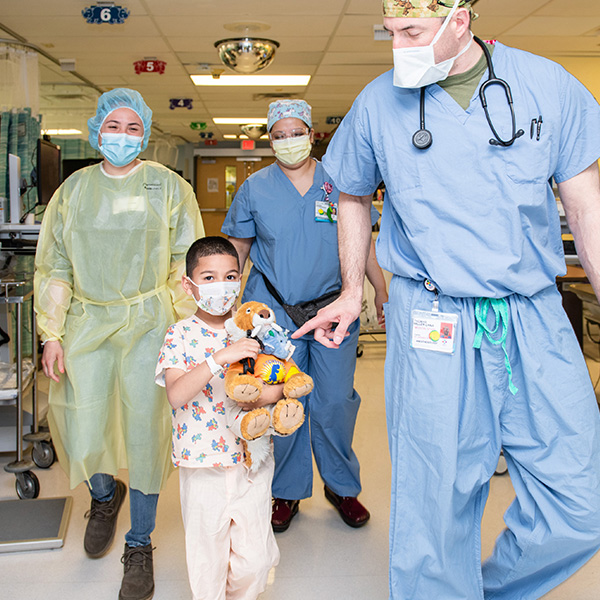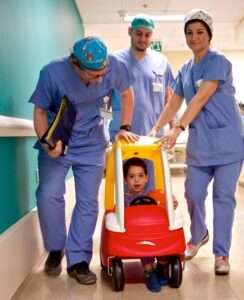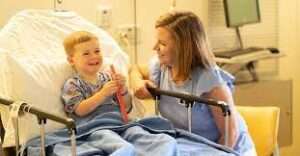A Parent’s Role in Preparing for Surgery Grade Schooler (6-12 Years)
- Dr Owais Rafiq
- February 21, 2024
- 9:04 pm

Surgery Readiness for Children Aged 6 to 12
Regarding setting up your grade-schooler (ages 6-12) for Surgery, moving toward the subject with responsiveness and giving age-fitting data is essential. At this stage, kids better comprehend their bodies, wounds, and the medical clinic climate.

Understanding Grade Schooler’s Fears:
Grade schoolers may have unique fears and concerns related to Surgery, including:
- Fear of pain or discomfort during and after the procedure.
- Worries about changes in their body shape or appearance.
- Anxiety about being away from school and falling behind.
- Concerns about being separated from their parents or loved ones.
- Apprehension of the hospital environment and medical procedures.

Transparent Correspondence:
Participating in transparent correspondence is fundamental to lightening your kid’s apprehensions and giving them vital data. Consider the following tips:
- Find a quiet and comfortable space to have a conversation.
- Use age-appropriate books or online resources to explain the Surgery and its purpose.
- Address their concerns and answer any questions they may have.
- Emphasize that the medical team will take good care of them.

Educate About the Body and Surgery:
Grade schoolers have a better grasp of their bodies and how they function. Use this opportunity to educate them about the specific procedure they will undergo.
- Talk openly about any potential changes in their body post-surgery.
- Emphasize that the Surgery aims to improve their health or address an issue.
- Discuss any temporary effects the Surgery may have on their appearance.
- Reassure them that their body will heal and return to its normal state over time.
- Encourage positive body image and self-acceptance throughout the healing process.
Hospital Tour and Pre-Operative Visit:
During a hospital tour or pre-operative visit for your grade schooler, contact the hospital in advance to arrange the visit. Show them operating rooms, recovery areas, and shared spaces. Introduce them to the medical staff and address their concerns. Highlight positive aspects like child-friendly spaces or artwork.
Also, Check: preparing your child for surgery
Getting ready for the Surgery:
- Follow the fasting guidelines provided by the medical team to prepare your child for the procedure.
- Administer any prescribed medications as instructed.
- Help your child pack a comfort bag with familiar items, such as a favorite stuffed animal, books, or a special blanket.
- Dress your child in comfortable clothes suitable for the Surgery and recovery period.
- Plan for transportation to and from the hospital, ensuring that you have ample time for check-in and pre-operative procedures.
How to Care for Your Child After Surgery?
- Follow post-operative instructions from the medical team.
- Administer prescribed pain medications as needed.
- Monitor the surgical site for signs of infection.
- Encourage rest during the recovery period.
- Provide a nutritious diet to support healing.
- Ensure your child stays hydrated by offering plenty of fluids.
- Offer emotional support and encourage open communication.
- Gradually reintroduce activities based on medical guidance.
- Attend follow-up appointments to monitor progress.
- Celebrate milestones and acknowledge your child’s resilience.
Also, Check: preparing your child for surgery toddler 1-3 year

Conclusion
You may make your grade-schooler feel ready and calmer during surgery by communicating, playing, getting to know the emergency clinic, and providing consistent support. Remember that every youngster is exceptional, so adjusting these techniques to your kid’s needs is significant.
Dr Owais Rafiq
Subscribe to Dr Owais YouTube channel
For parenting advice, child health, symptoms, causes and treatment of illness in children.





